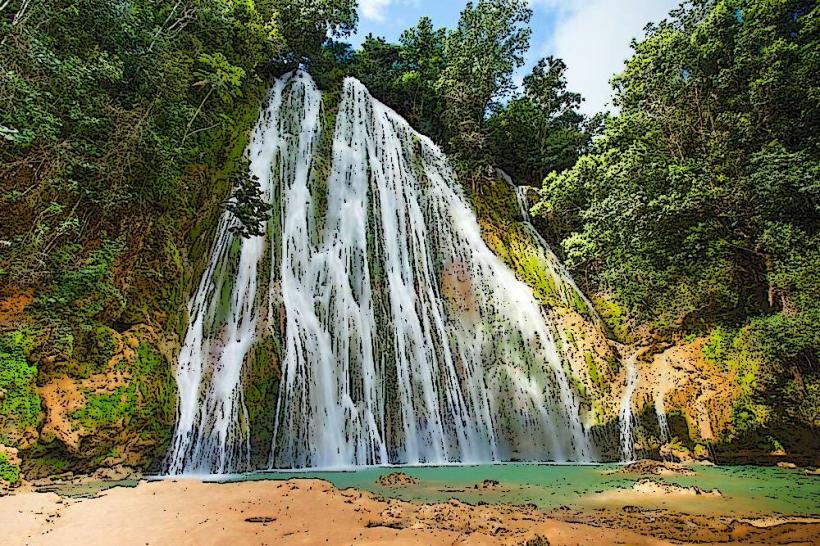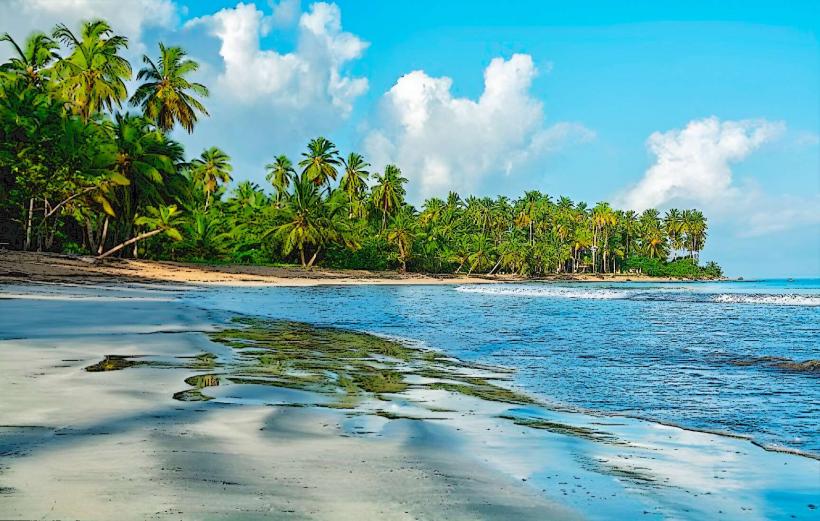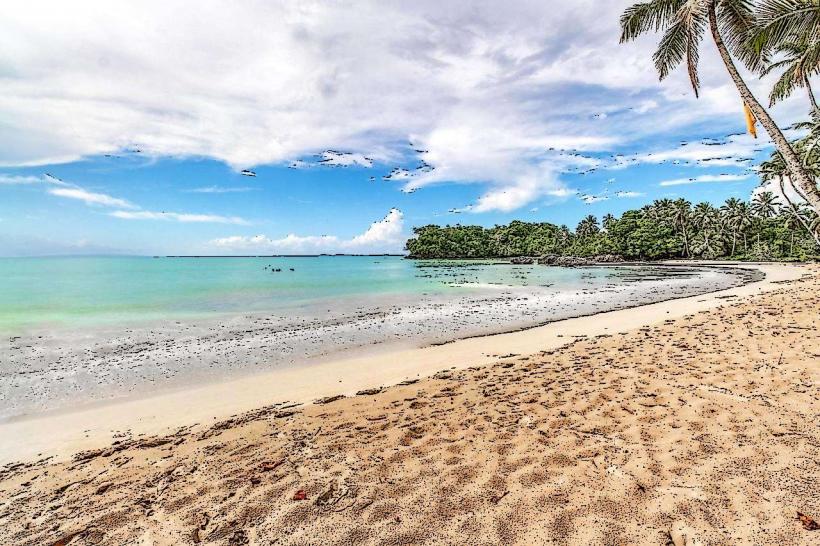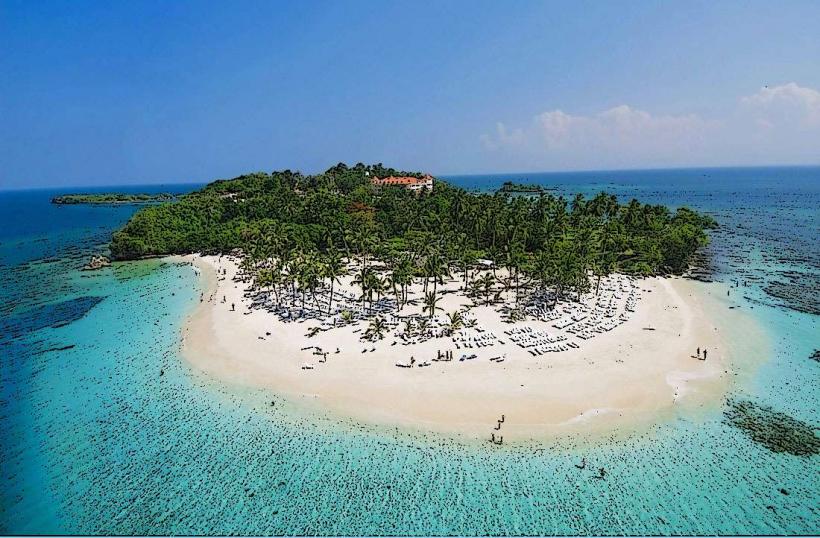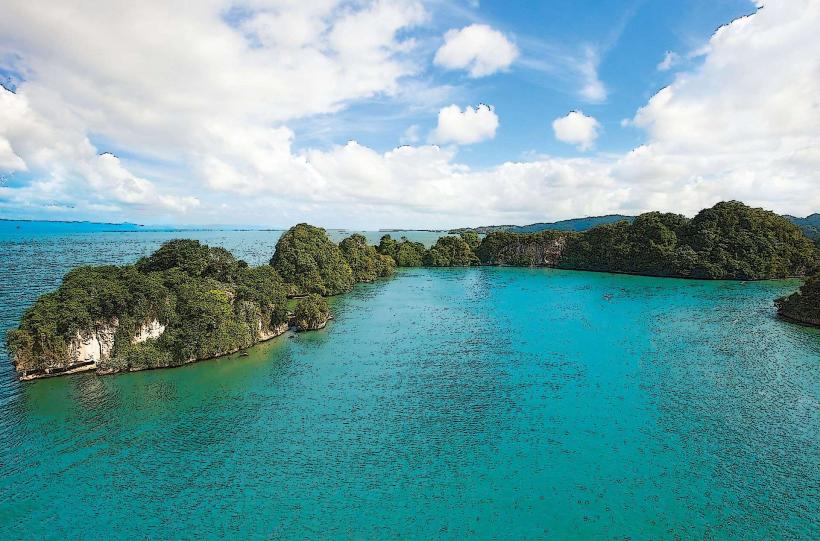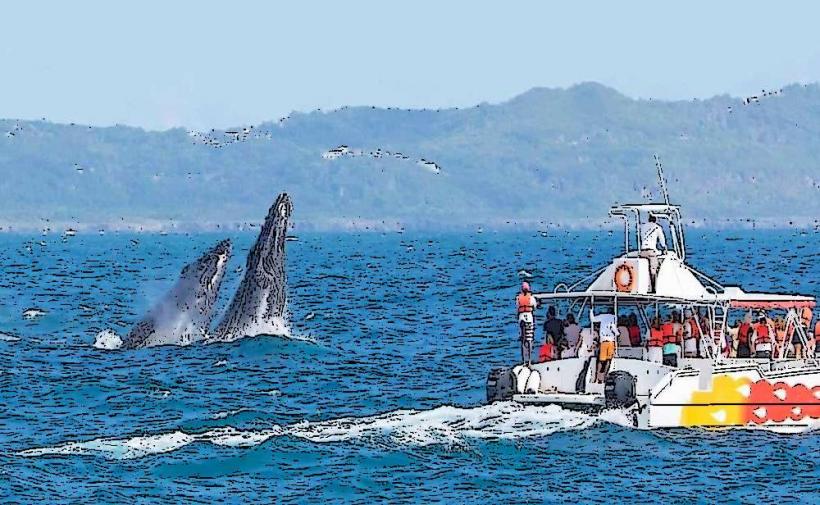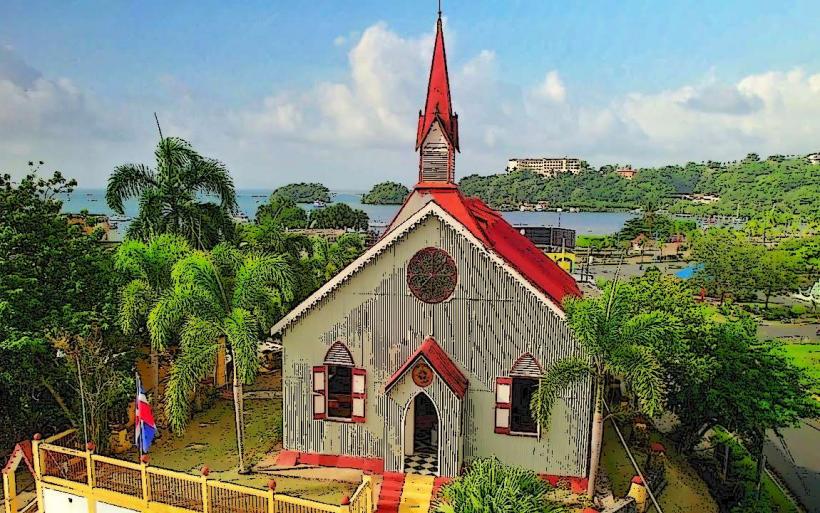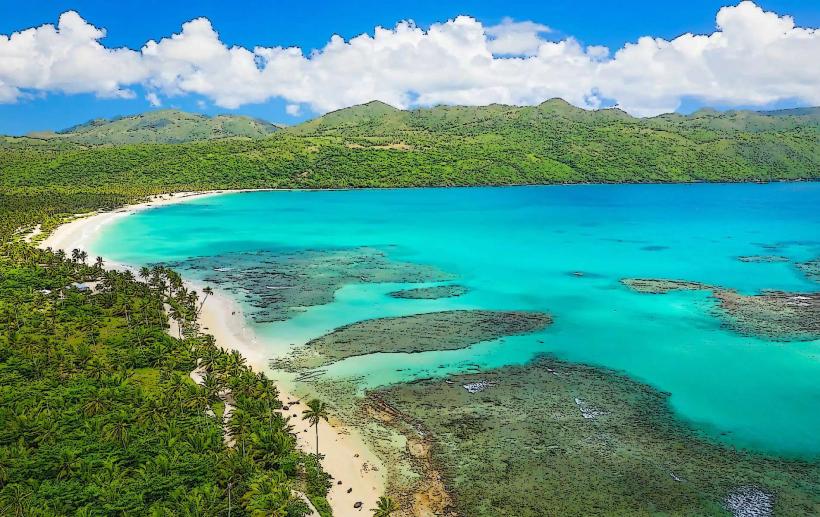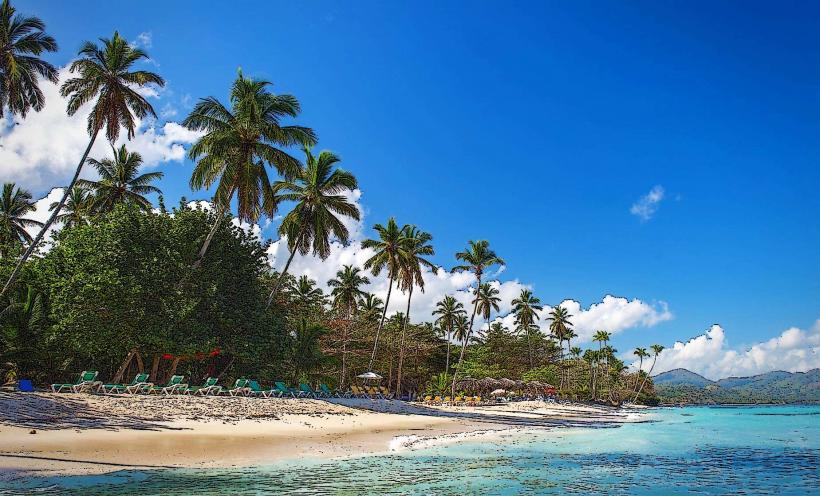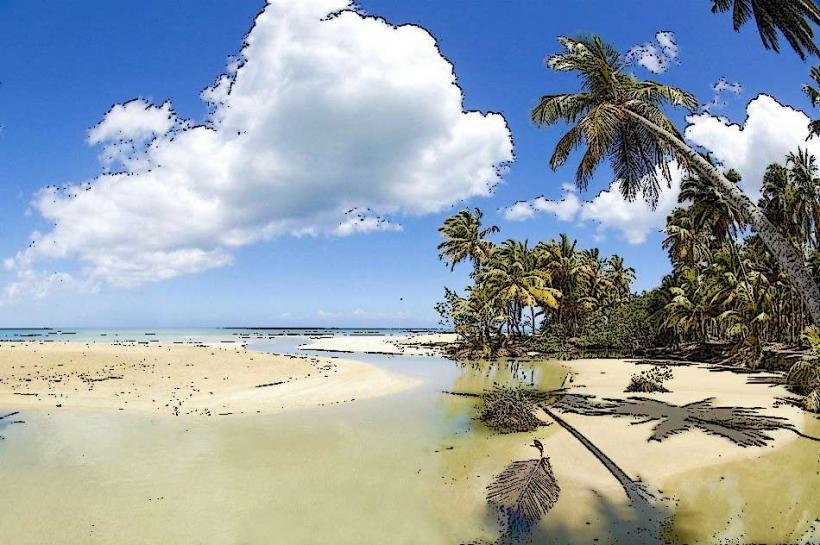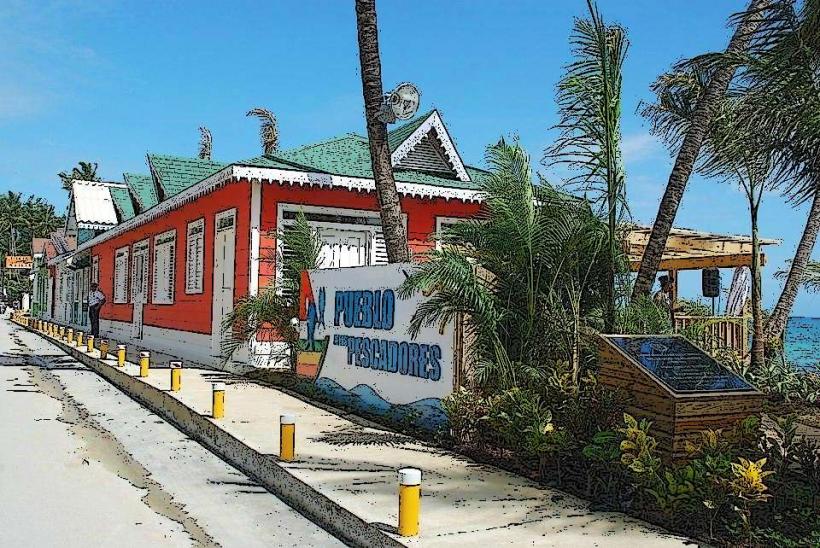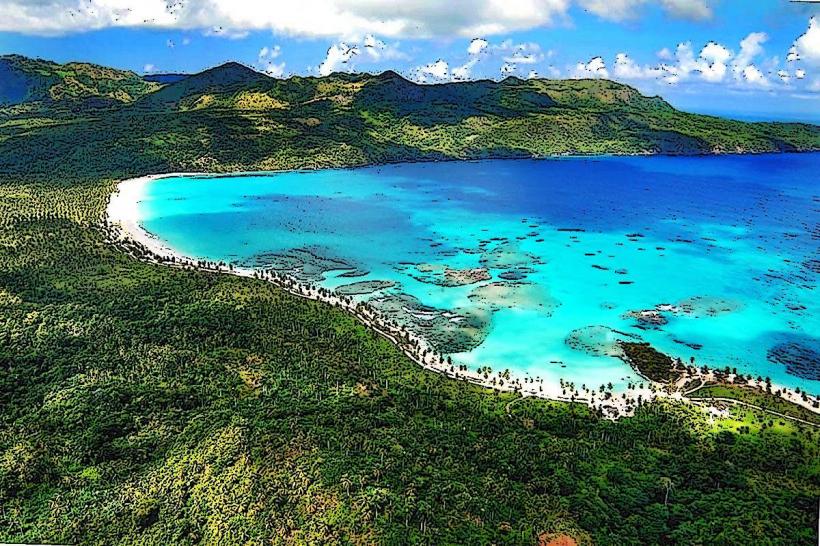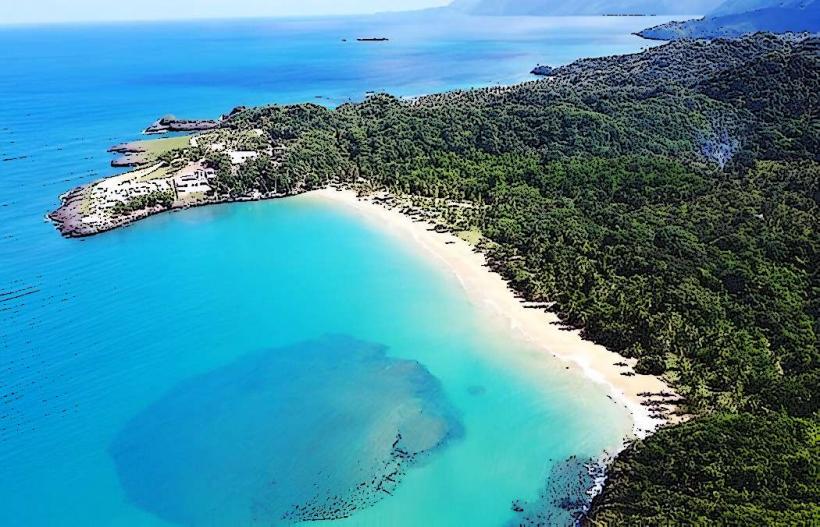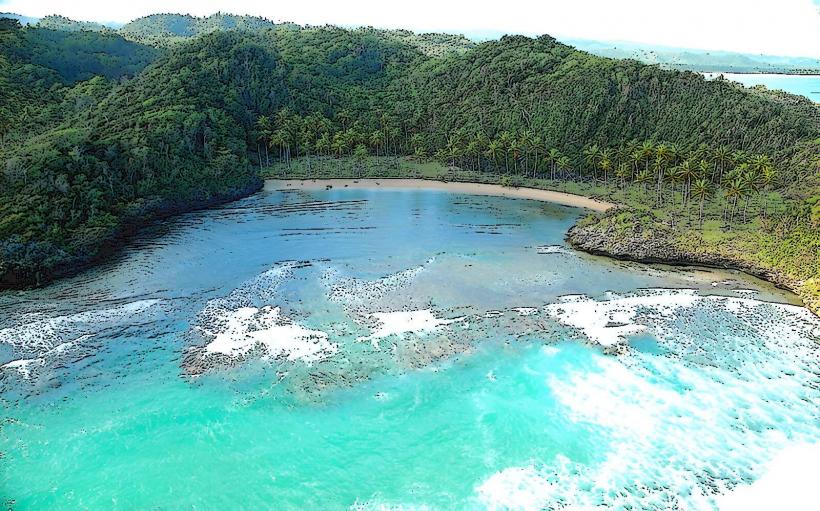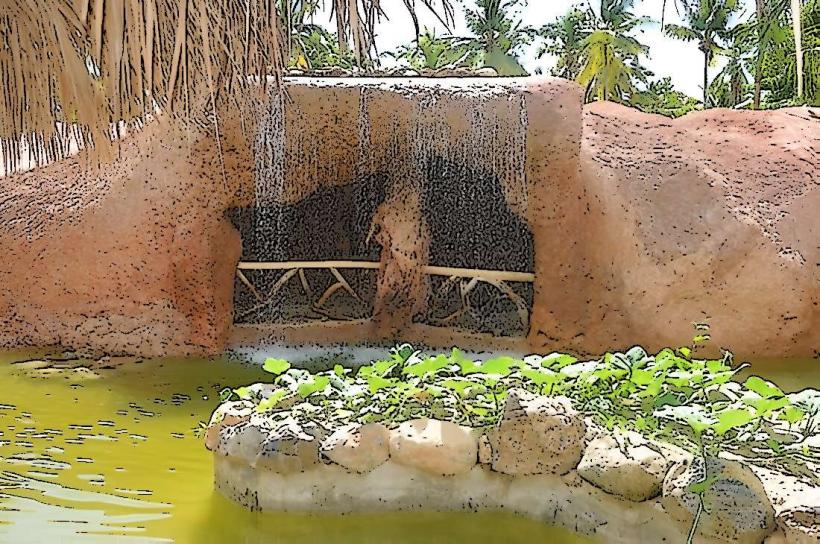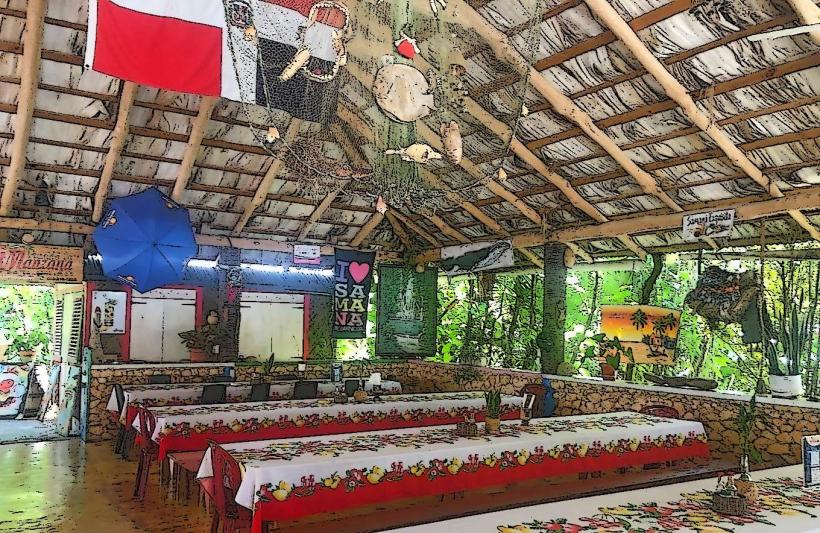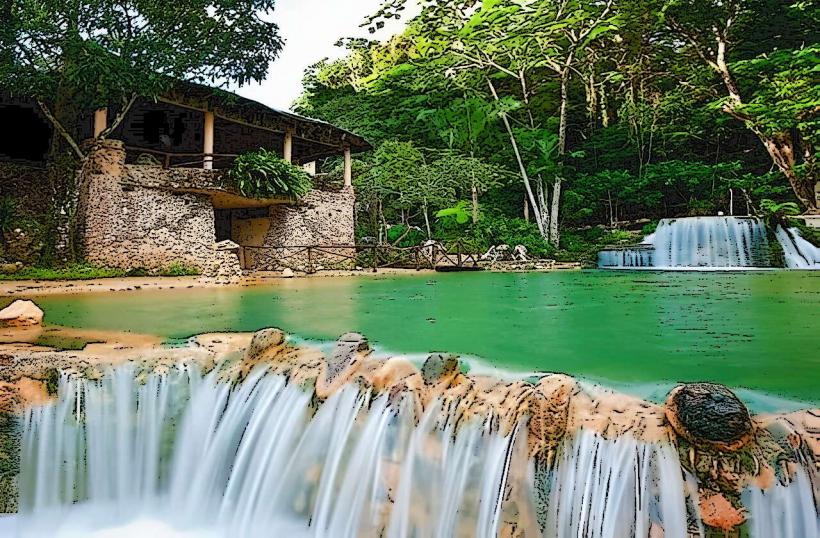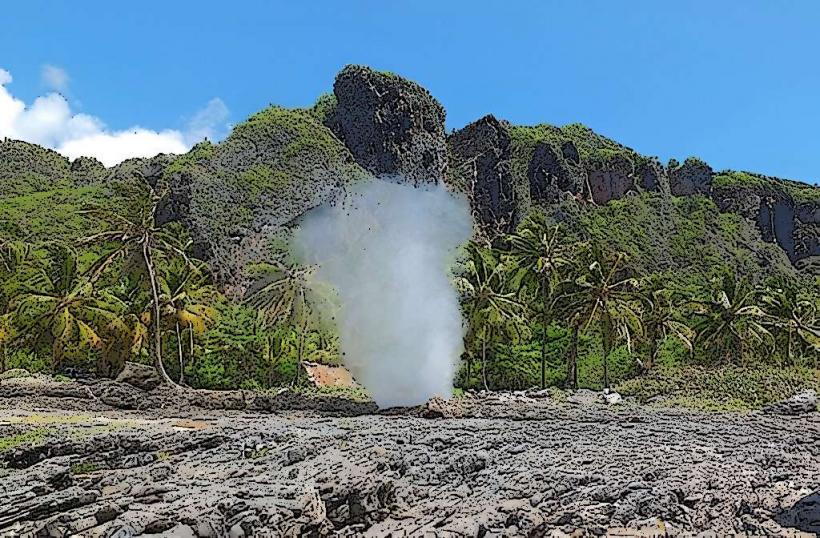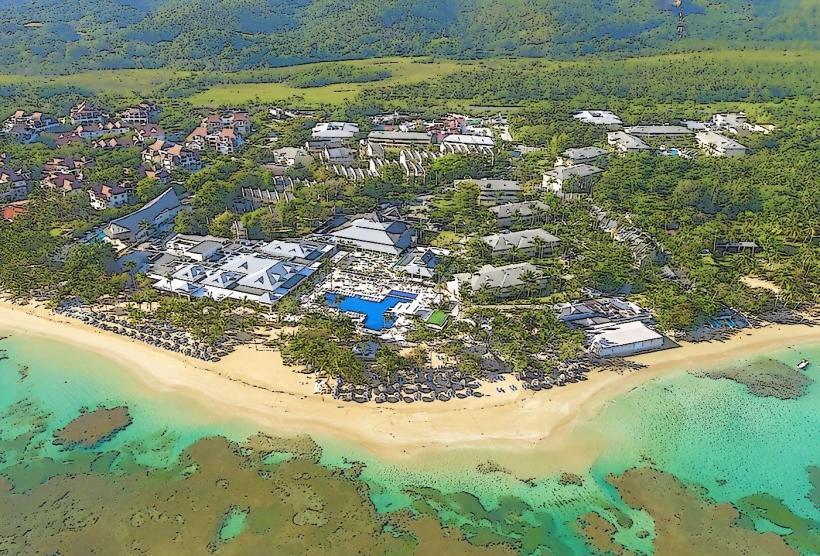Information
City: SamanaCountry: Dominican Republic
Continent: North America
Samana, Dominican Republic, North America
Samaná, officially Santa Bárbara de Samaná, is a town located on the southern coast of the Samaná Peninsula in the northeastern Dominican Republic. It is recognized as a global center for whale watching and eco-tourism, characterized by its mountainous terrain, coconut groves, and marble deposits.
Historical Timeline
Founded in 1756 by Spanish families from the Canary Islands to prevent English and French expansion into the bay. In 1824, approximately 200 free African Americans from the United States (primarily Philadelphia) immigrated to the area under the invitation of President Jean-Pierre Boyer; their descendants maintain a distinct cultural presence today. The town underwent a controversial modernization in the 1970s, where the historic wooden "Gingerbread" buildings were largely demolished to make way for a contemporary concrete grid.
Demographics & Population
The municipal population is approximately 58,000. The demographic includes a significant concentration of Afro-Dominicans with English surnames (descendants of the 1824 immigrants) and a growing European expatriate community (French, Italian, and Spanish).
Urban Layout & Key Districts
Avenida de la Marina: The scenic waterfront boulevard featuring the "Pueblo Príncipe" colorful shopping arcade and the main pier.
The Harbor: The focal point of the town, serving as the departure point for whale-watching and excursions to Los Haitises.
Los Puentes: A series of pedestrian bridges connecting the mainland to small offshore islets (Cayos).
Las Galeras: A remote village at the peninsula's tip, part of the Samaná municipality but distinct in its seclusion and pristine beaches.
Top City Landmarks
Samaná Bay: A sanctuary for thousands of North Atlantic humpback whales that migrate here annually (January–March) to mate and give birth.
Cayo Levantado: Also known as "Bacardi Island," a small islet in the bay with white sand and turquoise water.
La Churcha: A historic 18th-century wooden church sent from England in pieces by the African Methodist Episcopal Church; it is the only major historic structure that survived the 1970s demolition.
Whale Museum (Museo de la Ballena): Dedicated to the biology and protection of humpback whales, featuring a full whale skeleton.
Salto El Limón: A 40-meter waterfall located 30 minutes from the town, typically reached via horseback through tropical forest.
Transportation Network
Air: El Catey International Airport (AZS) is located 45 minutes west, primarily handling seasonal flights from Europe and North America.
Roads: The Autopista del Nordeste and the Boulevard Turístico del Atlántico provide a modern link to Santo Domingo (approx. 2.5 hours).
Sea: Direct ferry services connect Samaná to Sabana de la Mar on the southern shore of the bay.
Local Transit: Motoconchos (motorcycle taxis) are the primary mode of internal transport. Uber has limited availability; private taxis or rented vehicles are standard for tourists.
Safety & "Red Zones"
Samaná is generally safer than the larger urban centers of Santo Domingo or Santiago.
Risks: Petty theft on secluded beaches and overcharging by tour operators.
Advice: Avoid walking in poorly lit areas of the "Malecón" late at night. Exercise caution when swimming at Playa Rincon or El Valle due to strong Atlantic rip currents.
Digital & Financial Infrastructure
High-speed internet is available in the town center and major resorts via fiber-optic cables. Mobile 4G/5G coverage is strong in town but drops significantly in the mountainous interior. ATMs are concentrated on the Avenida de la Marina and in major supermarkets. The currency is the Dominican Peso (DOP).
Climate & Air Quality
Tropical rainforest climate.
Weather: The peninsula is the wettest part of the country; rain is frequent but usually brief. Average humidity is 80%.
Air Quality: Exceptional, due to the density of forest cover and the lack of industrial facilities on the peninsula.
Culture & Social Norms
The town has a unique Anglo-Caribbean influence. "Samaná English" (a 19th-century dialect) is still spoken by some older residents. Tipping is 10%. Local cuisine is distinct for its heavy use of coconut milk (Pescado con Coco) and ginger.
Accommodation Zones
Avenida de la Marina: Best for proximity to whale tours and town infrastructure.
Las Galeras: Best for seclusion and access to the island's most pristine beaches.
Cayo Levantado: Best for luxury resort exclusivity.
Local Cost Index
1 Espresso: $RD 120 ($2.00)
1 Standard Lunch (Pescado con Coco): $RD 550 ($9.25)
1 Whale Watching Tour: $RD 3,000–4,500 ($50–$75)
Nearby Day Trips
Los Haitises National Park: A limestone karst plateau with mangrove forests and Taino caves.
Playa Rincón: Consistently ranked among the top ten beaches in the world.
Las Terrenas: 45 mins; a cosmopolitan beach town with a French-influenced culinary scene.
Facts & Legends
A verified historical oddity is that the town was once considered by the United States for purchase or lease as a major naval base during the Grant administration. Local legend speaks of the "Ciguapa," whose backward-facing feet are said to lead trackers deep into the Samaná mountains where she disappears.

